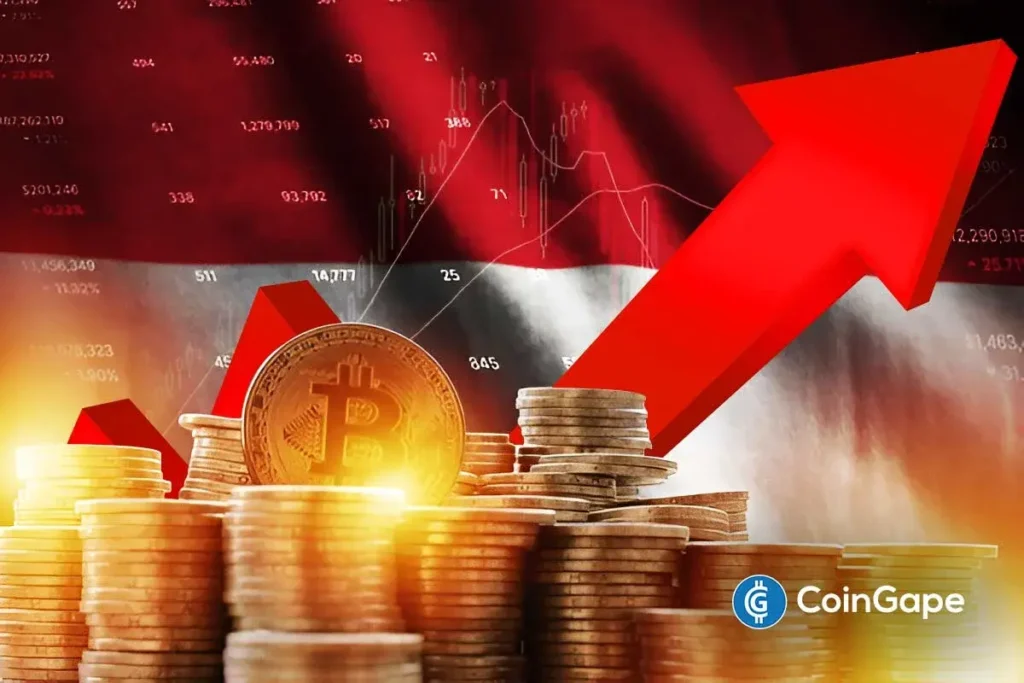Indonesia’s Evolving Crypto Tax Landscape: Implications and Opportunities
Indonesia’s cryptocurrency environment is currently experiencing a pivotal transformation with the introduction of new tax regulations effective August 1. This updated framework features a 0.21% levy on domestic crypto trades and a 1% tax on international exchange transactions. These changes are designed to capitalize on the burgeoning market, which boasts over 20 million users, offering immediate effects on both local and international trading activities.
Revised Tax Structure
The Indonesian government has adjusted its domestic crypto tax from 0.1% to 0.21%, marking a significant increase. Meanwhile, international exchanges will see a drastic rise from 0.2% to 1%. However, in a move to stimulate local trading, the previous Value-Added Tax (VAT) on crypto transactions, which hovered between 0.11% and 0.22%, has been eliminated. For miners, although the VAT on mining activities has doubled, the removal of the 0.1% special income tax provides some respite, as they will transition to standard income tax brackets by 2026.
The changes have garnered attention from key industry players. Tokocrypto, a platform backed by Binance, views these regulations as a constructive step toward embracing digital assets as legitimate financial instruments. However, they have advocated for a transition period of at least a month for businesses to adjust to the new regulatory landscape. The call for improved oversight and enforcement of tax obligations on foreign platforms underscores the need for a balanced compliance strategy.
Rationale Behind the Tax Increase
The driving force behind Indonesia’s tax hike is its rapidly growing crypto market. In 2024, total transaction values skyrocketed, tripling to over $39.67 billion, from 650 trillion rupiah the previous year. There are now more crypto traders in Indonesia than stock market investors, emphasizing the transition toward digital financial assets. The government aims to standardize the market, generate revenue, and encourage the use of domestic exchanges by offering lower tax rates compared to foreign platforms.
Beyond financial benefits, this tax overhaul serves to enhance the regulatory framework around crypto assets. Since recognizing digital assets as commodities in 2019, Indonesia has aimed to formalize its crypto sector. By establishing a consistent tax regime, the government seeks to increase revenue while also ensuring compliance from traders and platforms, thereby strengthening investor trust in the local market.
Comparative Tax Landscape
In contrast to Indonesia’s evolving crypto tax regime, other countries are taking different approaches. For instance, India has decided to retain its high crypto tax rate at 30%, indicating a cautious stance towards cryptocurrency regulation. On the other hand, recent proposals in the United States have suggested eliminating capital gains taxes on cryptocurrencies to encourage everyday use. This juxtaposition of regulatory environments highlights the global diversity in how nations perceive and manage digital currencies.
Indonesia’s proactive tax policy positions it for growth, especially as it seeks to become a competitive player in the crypto space. While its tax rates may seem high in isolation, they reflect a commitment to fostering a regulated environment where exchanges and miners can operate transparently and securely.
The Future of Crypto in Indonesia
The future of cryptocurrency in Indonesia looks promising, albeit challenging. The revised tax structure aims to create a more predictable environment for traders and investors. By fostering greater liquidity and encouraging the use of domestic exchanges, the government hopes to cultivate a mature crypto ecosystem. Additionally, with more than 20 million users actively trading, the potential for increased tax revenue is significant.
As regulatory clarity improves, businesses can feel more assured operating within the framework. This stability is essential for attracting foreign investment and expertise, making Indonesia a focal point in the Southeast Asian crypto market. If the government successfully balances regulation with innovation, it could pave the way for sustainable growth in the crypto sector.
Conclusion
In summary, Indonesia’s revised crypto tax regulations signify a crucial step toward establishing a structured and robust digital asset marketplace. By adjusting tax rates and eliminating certain levies, the government aims to promote local exchanges and create a favorable environment for traders. As the global landscape continues to evolve, Indonesia’s proactive approach could serve as a model for other nations grappling with similar challenges in regulating and capitalizing on the cryptocurrency revolution. Investors and businesses should remain vigilant as they navigate this dynamic environment and make informed decisions in the expanding crypto space.

![Here’s Why Injective [INJ] Is Likely to Fall to the $10 Demand Zone Next](https://icoinmarket.com/wp-content/uploads/2025/08/Injective-Featured-1000x600.webp-300x180.webp)














